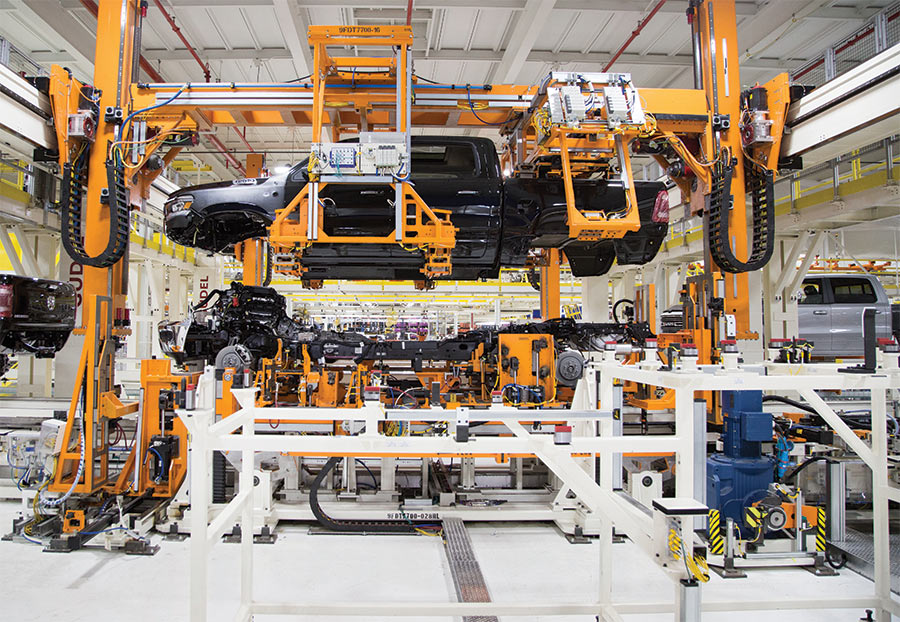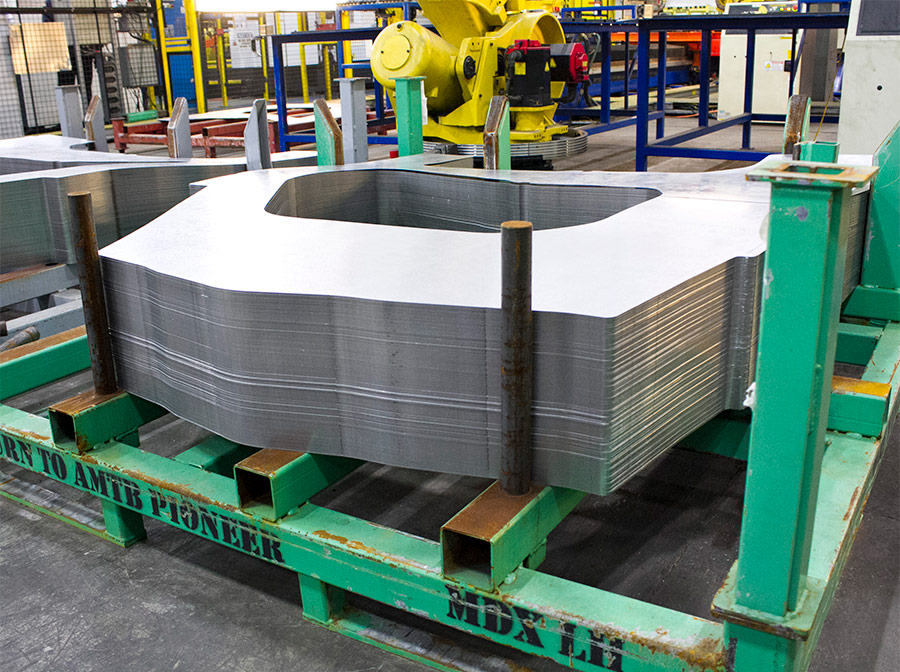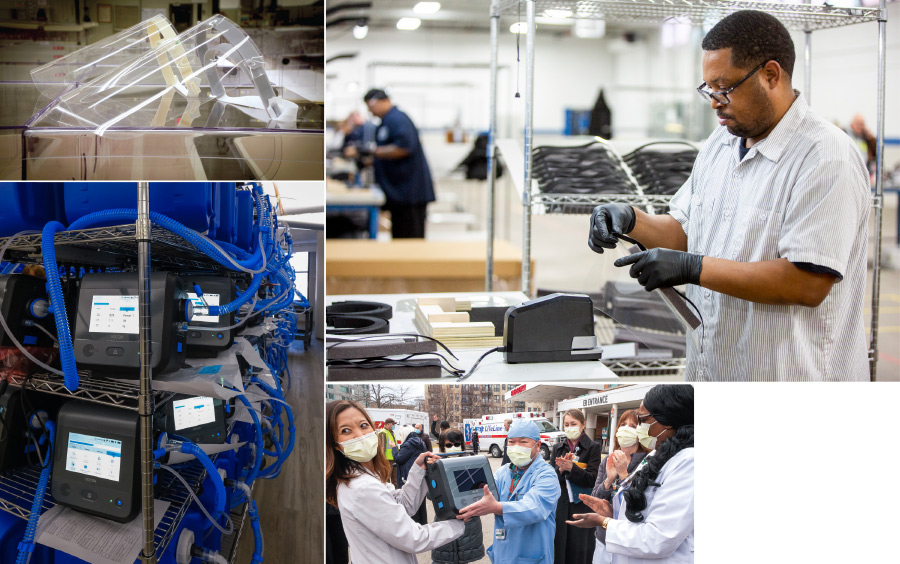
he impact of COVID-19 on industrial activity “has been immense,” Paul Williams, head of aluminum at CRU Analysis said in a March 27 report. And that could not be more true than within the automotive supply chain, which wraps around the world and includes metals production, stocking and distribution, forming, and stamping.
Because the pandemic was still escalating as of that date, CRU forecast a global economic recession in 2020. “Uncertainty about the end game has fueled financial market volatility and prompted unprecedented government support,” Williams writes.
“Aluminum demand has collapsed across many markets and countries. For example, the automotive industry is a sector that will see a severe contraction in 2020 output that will significantly impact aluminum demand.”
In Europe, many assembly operations are idled, and production is expected to fall by around 15 percent in 2020, although any such projection “has a high degree of uncertainty given the current crisis.” CRU expects North American vehicle output to drop 10 percent. Aluminum producers announced curtailments downstream in response to the weakening demand.
CRU forecast that primary aluminum demand will drop by 20 percent during the second quarter, compared with the same 2019 period, worldwide (excluding China). It projects that for the year, the primary market will end up with a global surplus of around 4 million metric tons.
Honda extended the production suspension for its automobile, engine and transmission plants in the U.S., Canada and Mexico through April 30 or May 1. The suspensions began March 23. “This extension is in response to the continued steep decline in market demand across the automotive industry due to the impact of the COVID-19 pandemic on the economy, resulting in the inability of consumers in many markets to purchase new vehicles,” the automaker stated.
Honda, too, is deep cleaning its production facilities and common areas to further protect employees upon their return to work.
 Production restarts, and how quickly people will return to dealerships—that’s a big unknown.
Production restarts, and how quickly people will return to dealerships—that’s a big unknown. 
Starting in late May, U.S. Steel will idle all or most of Lone Star Tubular Operations and Lorain Tubular Operations for an indefinite period of time in response to weak tubular market conditions, including continued high levels of imports and decreased demand driven by a sudden, significant drop in oil prices. The company has issued Worker Adjustment and Retraining Notification (WARN) Act notices to employees at both facilities.

“The global escalation of COVID-19 and the measures introduced by governments worldwide to contain the virus are negatively impacting economic activity and industrial supply chains in many parts of the world. Consequently, we are either seeing or expect to see a significant decline in industrial activity in many if not all of the geographic markets in which we operate, which is impacting our business,” ArcelorMittal stated March 31.
In response, the steelmaker is reducing production and temporary idling steelmaking and finishing assets, adapted on a country-by-country basis in alignment with regional demand as well as government requirements.

Worthington’s president, Andy Rose, was very frank: “The COVID-19 virus is derailing a well-performing economy.” However, because the company is part of a supply chain “that makes products for use in healthcare, home and portable heating, construction and critical transportation infrastructure, many of our businesses are considered essential businesses under these rules.” Rose anticipates a drop in metals demand but expressed hope that these conditions are temporary. “We’re in communication with the Detroit 3 as a big supplier to those guys. The production restarts, and how soon and quickly people will return in numbers to dealerships—that’s a big unknown.”
Many respondents said they were “contemplating shutting down plants due to fall in demand and automotive downturn,” the IHS Market survey found.
Suppliers were impacted by labor shortages, too. About 39 percent of the respondents said labor shortages were the result of travel restrictions and mandatory quarantines in place. A few plants have since brought workers back.
Around 40 percent of automotive suppliers who took part in the survey said that they have witnessed raw material shortage that affected one or more plants. Some indicated they weren’t facing any issue with supplies from their sub-suppliers yet but could see a growing risk of raw material shortage if the situation continues for more than two weeks. Only 22 percent of North American suppliers said they faced raw material issues.
About 37 percent of auto suppliers said their plants experienced logistics issues, such as road transport blockage and stuck containers at port, following the outbreak. Only 11 percent of those citing logistics problems were from North America.

Across all manufacturers, there is a global order backlog of critical care ventilators capable of supporting patients fighting COVID-19. The two companies will add thousands of units of new capacity. GM is contributing its resources at cost.
GM also began manufacturing FDA-cleared Level 1 surgical masks at its Warren, Michigan, factory during the last week of March. Within the first two weeks of April, GM hoped to ramp up to 50,000 masks per day, with the potential to increase to 100,000 per day.
GM is deploying about 1,000 autoworkers to scale production of critical care ventilators. Working with the UAW, GM has brought back employees from GM’s Kokomo and Marion facilities.
GM noted that the initiative to make surgical masks was led by employees and a plan was delivered and approved in a mere 48 hours. GM is collaborating with governments and local suppliers to distribute the masks.
Meanwhile, Ford Motor Co., Dearborn, Michigan, joined forces with firms, including 3M and GE Healthcare, to quickly expand production of urgently needed medical equipment and supplies for healthcare workers, first responders and patients fighting coronavirus.
Ford plans to assemble more than 100,000 face shields per week and leverage its in-house 3D printing capability to produce components for use in personal protective equipment.
“This is such a critical time for America and the world. It is a time for action and cooperation,” Executive Chairman Bill Ford stated. “At Ford, we feel a deep obligation to step up and contribute in times of need.”
Ford is working with 3M to increase the manufacturing capacity of its powered air-purifying respirator (PAPR) designs and working jointly to develop a new design leveraging parts from both companies to meet the surge in demand from first responders and health care workers. The automaker is looking at how it might produce PAPRs in one of its Michigan manufacturing facilities, helping 3M potentially boost production tenfold.
In addition, Ford and GE Healthcare are working together to expand production of a simplified version of GE’s existing ventilator design to support patients with respiratory failure or difficulty breathing caused by COVID-19. At the same time, Ford’s U.S. design team began testing transparent full-face shields for medical workers and first responders at Detroit-area hospitals. Ford subsidiary Troy Design and Manufacturing expects to manufacture more than 100,000 face shields per week in Plymouth, Michigan, as soon as mid-April.
Lastly, Ford is leveraging its in-house 3D printing capabilities to manufacture components and subassemblies for use in personal protective equipment.